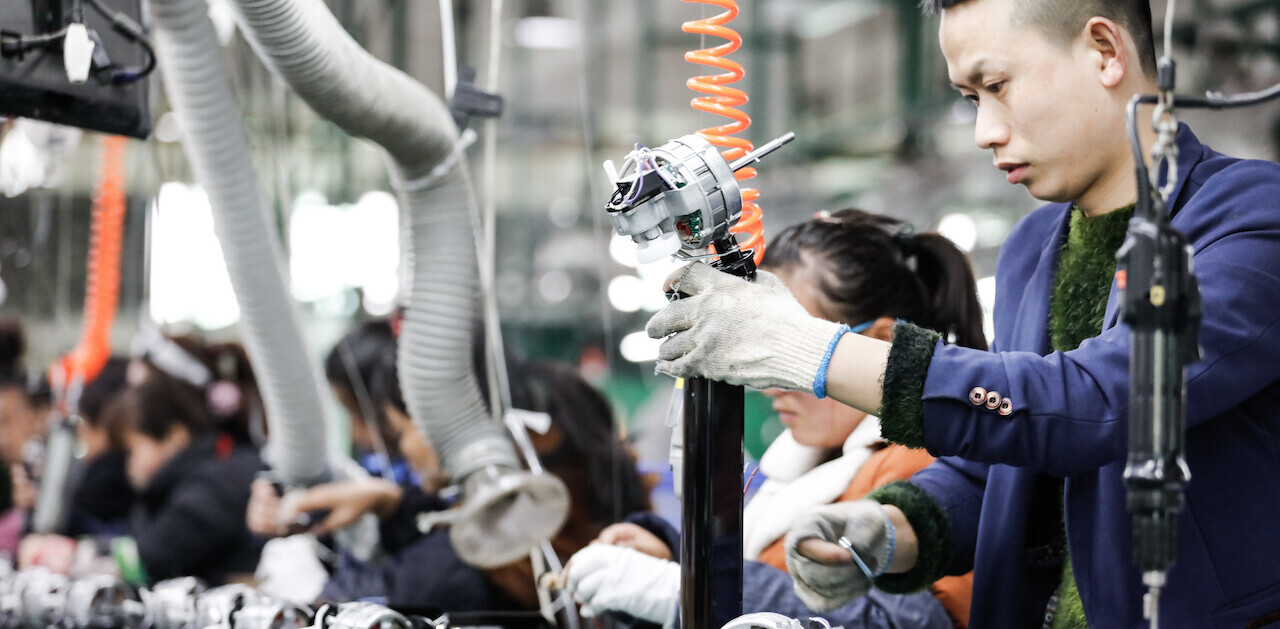
SuperMama, a brand new site catering to Middle Eastern mothers and families, launched at the beginning of October. The bilingual Arabic and English site provides information for mothers and mothers-to-be, provides a platform for an online community to come together and interact, and even provides its users with a toolbox to manage tasks, both at home or at work, keep track of your budget, and your health.
The story behind SuperMama
SuperMama co-founders Yasmine El-Mehairy and Zeinab Samir met 5 years ago when they were colleagues at an Egyptian IT services company OpenCraft, which didn’t make it through the 2009 economic crisis. The company may have gone under, but their friendship and desire to launch a startup of their own survived the years. Yasmine tells The Next Web, “We always worked together and always hoped we’d get a chance to have a startup of our own. We were looking for ideas, but we didnt want to do just another commerical product. We needed something that adds value.”
As with many startups in the region, Yasmine and Zeinab’s company, SuperMama, was born out of a personal experience. Yasmine explains, “By September 2010, when my sister-in-law got pregnant, we realized how much mothers-to-be and mothers need to change in their lifestyle, nutrition, health and so forth and that’s when SuperMama as an idea was born.”

In their initial discussions about the site, Zeinab explains that they described it as “Tools for moms to become supermoms, and then we kept saying, Supermum, until we decided to tweak it, so it is familiar for Arab mothers.” They settled on SuperMama, Zeinab explains, “Since mama is what we call our mothers.”
They began to research, conduct feasibility studies and speak to mothers on an informal basis. By mid-October 2010, they applied for the MIT Arab Enterprise Forum Business Plan competition and managed to place among the 30 semi-finalists out of a staggering 3,800 pan-Arab applicants across all industries.
Yasmine admits that during the training sessions that followed in Beirut, they realized they still had a long road ahead of them, and that the concept still needed to be tweaked. “We met with some mentors in Cairo who helped us see the weaknesses in our business plan and by early June 2011, we recruited our two other partners, Shereen El-Sammaa, our Marketing Director and Ahmed El-Hawary, our Sales Manager.”
Since then, the team has expanded to a software engineer, 8 researchers and writers who provide the content for the site, as well as 4 experts – a pediatrician, nutritionist, an allergy and immunology doctor and a gynecologist, all of whom both write and review content for the site.
Ready to apply for another competition, Yasmine and Zeinab entered SuperMama in the 2011 NexGen IT Entrepreneurs Boot Camp Master Class, a week long event in Cairo which involved training and mentoring of teams by visiting US and Danish entrepreneurs. The participation culminated in four teams winning internships in the US and Denmark. SuperMama was among the winners, alongside Bey2ollak, a mobile traffic application we have covered in the past, GroupStream, the team behind 18DaysInEgypt, and Inkezny, a mobile app which provides users with a way to get emergency help no matter where they are in the world.
Inside the startup ecosystem
Yasmine and Zeinab are currently in Denmark where they are being mentored by Thomas Mygdal-Madsen, as well as still being mentored by Shama Kabani from the US. Getting professional feedback, mentoring and guidance throughout each stage of SuperMama has been an invaluable part of both Yasmine and Zeinab’s experience. Aside from the workshops they have participated in, they have also received mentoring and advice locally in Cairo. Yasmine explains:
“I used to work at ITWorx in the past and had a good relationship with Mr. Wael Amin, the President. We feel the [local] community is growing but the ecosystem isnt as ready as it is in Europe.”
That very lack of an ecosystem has been a source of inspiration to the SuperMama founders:
“Zeinab and I were thinking, when we’re good enough, we’d love to mentor people and start the Egyptian Entrepreneur Ecosystem.”
Their experience in Denmark is a step not only towards making SuperMama a success, but is also providing them with the tools to establish that ecosystem in their home country. Yasmine explains the process they have been going through in Denmark:
“Most days, a mentor comes in, [gives a ] 30-60 minute presentation, then there are one-on-one meetings with each team. They work with you on your idea and point out advice or opporunities from their experience. If a “connection” happens between a mentor and a team, they stay in touch, and work closer together. But the most interesting part is the networking. Every mentor helps connect you to someone in their network that can help. We’ve gotten in touch with some Danish female-sites and other mentors are introducing us to sites in the UK and Germany.”
Through these connections, Yasmine and Zeinab have taken the opportunity to learn from other people’s experiences, and mistakes. Yasmine says:
“They tell you their lessons learnt – what worked and what didn’t. For example Caroline from Bornibyen told us how she got her community going from zero to being the biggest in Denmark.” Zeinab adds, “I think we are lucky that we are getting in touch with experience that we can build on.”
These connections have led not only to tips on how to better their own site, but has also led to symbiotic relationships spreading through an international ecosystem. Latvian based startup, VideoAvatars provided SuperMama with a video introduction which you see when you first visit the site. “They made it for us for free,” explains Yasmine. “Where else would you get that?”
SuperMama’s edge
Like any Middle East based startup, SuperMama has had its work cut out for it in localizing the service to suit an Egyptian, and Middle Eastern audience, and according to Yasmine, that is the site’s edge:
“The Middle East and North Africa is so different from Europe and the US, not only in how people react and are motivated, but also in the details, like how much babies should weigh and vaccination schedules and how to handle teenagers. That’s where SuperMama stands out. That’s why our experts are Arab, or Egyptian. They know what mamas need to know.
Whenever you mention the words ‘mother and child,’ you get two responses – BabyCenter and Fatakat. BabyCenter is an international pregnancy-toddler site, that although has an Arabic version targeting the UAE, it doesnt cater for local variations, and things are very generic. On the other hand, Fatakat is an Arabic forum, that has information on all sorts of topics, but none of it is by accredited experts. We have local topics accredited by experts.”
According to Yasmine, SuperMama’s content has been localized to the extent that it addresses the three main problems that face mothers in the region – lack of money, lack of time or lack of information:
“For example, for money, we have budgeting ideas. Next week, we’ll be publishing an article on how to entertain guests on a budget. For time, we have things like preparing meals in less than 30 minutes, or advice for quick cooking. For information, we have all the pregnancy and parenting sections.”
More importantly, SuperMama provides the information, without attempting to influence readers with personal opinions:
“We don’t promote a certain direction, like whether or not to work, but we provide the pointers that enable mothers to decide what’s right for them.”
Within 4 days of launching, the site received over 5,400 visits, over 200 registered users and a significant following on Facebook and Twitter, “And we haven’t even started advertising or marketing yet,” Yasmine explains.
This is just the beginning, “In 5 years, we see SuperMama as the number one site for women in MENA. We want to reach out to all mothers and mothers-to-be and help them with information, shared knowledge, a community to rely on, and tools to improve the quality of their lives. Who knows, maybe by then, we’ll also be on radio or TV,” Yasmine says. Zeinab is quick to add, “Or have our own radio or TV station.”
Get the TNW newsletter
Get the most important tech news in your inbox each week.




